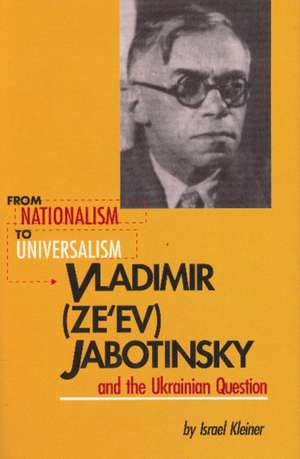From Nationalism to Universalism: Vladimir (Ze'ev) Jabotinsky and the Ukrainian Question
Autor Israel Kleineren Limba Engleză Paperback – 3 mai 2000
Preț: 159.77 lei
Preț vechi: 173.49 lei
-8% Nou
Puncte Express: 240
Preț estimativ în valută:
30.58€ • 31.68$ • 25.52£
30.58€ • 31.68$ • 25.52£
Carte indisponibilă temporar
Doresc să fiu notificat când acest titlu va fi disponibil:
Se trimite...
Preluare comenzi: 021 569.72.76
Specificații
ISBN-13: 9781895571332
ISBN-10: 1895571332
Pagini: 200
Dimensiuni: 152 x 228 x 16 mm
Greutate: 0.35 kg
Editura: CIUS Press
Colecția CIUS Press
ISBN-10: 1895571332
Pagini: 200
Dimensiuni: 152 x 228 x 16 mm
Greutate: 0.35 kg
Editura: CIUS Press
Colecția CIUS Press
